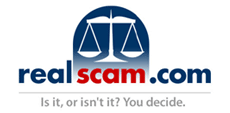-
Re: Investing with an Eye on Fraud Prevention
Above I said for the most part, there are a few links I often refer back to in writing about scams and wanted a useful place to dump them. Additionally there are things I read of interest to me on investing in general. For the purposes of this thread I will post them with an eye on keeping money safe from predators. The caveat being, I am not an investment professional, not an accountant, not an attorney, not a broker, insurance agent, or super hero and am not giving advice. That said, considering some of the garbage I see passed off one could do worse...
Some links to agencies that provide a wealth of information on avoiding scams and due diligence. There are probably 1000s of scams written about on this website and I doubt any did not show at least some red flags listed below well before they imploded. Many possess all the warnings and people still want to argue that they somehow have found a program that really works. Can't save them all.
How to Recognized an HYIP/PONZI Scam
The promise of high daily, weekly or monthly returns.
An offer from the company to pay “referral fees” to investors for bringing in additional investors.
The use of social media to spread the word and praise the program.
The promoter provides very few details about who runs the company and how profits are generated.
The promoter may require that the investor open an e-currency account to invest. E-currency accounts are not licensed as a money transmitter.
Informed Investor Advisory: HYIPs - NASAA
What are some Ponzi scheme "red flags"?
Many Ponzi schemes share common characteristics. Look for these warning signs:
High investment returns with little or no risk. Every investment carries some degree of risk, and investments yielding higher returns typically involve more risk. Be highly suspicious of any "guaranteed" investment opportunity.
Overly consistent returns. Investment values tend to go up and down over time, especially those offering potentially high returns. Be suspect of an investment that continues to generate regular, positive returns regardless of overall market conditions.
Unregistered investments. Ponzi schemes typically involve investments that have not been registered with the SEC or with state regulators. Registration is important because it provides investors with access to key information about the company's management, products, services, and finances.
Unlicensed sellers. Federal and state securities laws require investment professionals and their firms to be licensed or registered. Most Ponzi schemes involve unlicensed individuals or unregistered firms.
Secretive and/or complex strategies. Avoiding investments you do not understand, or for which you cannot get complete information, is a good rule of thumb.
Issues with paperwork. Do not accept excuses regarding why you cannot review information about an investment in writing. Also, account statement errors and inconsistencies may be signs that funds are not being invested as promised.
Difficulty receiving payments. Be suspicious if you do not receive a payment or have difficulty cashing out your investment. Keep in mind that Ponzi scheme promoters routinely encourage participants to "roll over" investments and sometimes promise returns offering even higher returns on the amount rolled over.
If you are aware of an investment opportunity that might be a Ponzi scheme, contact the SEC by phone at (800) 732-0330 or submit a tip online at sec.gov/complaint/tipscomplaint.shtml.
SEC.gov | "Ponzi" Schemes
SEC.gov | Beware of Pyramid Schemes Posing as Multi-Level Marketing Programs
SEC.gov | Pyramid Schemes
https://www.sec.gov/investor/pubs/te...toconsider.htm
SEC.gov | Five Questions to Ask Before You Invest
https://www.sec.gov/contact/addresses.htm
On checking investment professionals, review both state and federal databases as they aren't always synced up.
SEC.gov | Protect Your Money: Check Out Brokers and Investment Advisers
BrokerCheck Search Help | FINRA.org
-
Post Thanks / Like - 1 Thanks, 2 Likes, 0 LMAO, 0 Dislikes, 0 Ignorant, 0 Moron

1 Member(s) thanked for this post

2 Member(s) liked this post


 Thanks:
Thanks:  Likes:
Likes:  LMAO:
LMAO:  Dislikes:
Dislikes:  Ignorant:
Ignorant:  Moron:
Moron: 





 Reply With Quote
Reply With Quote 1 Member(s) thanked for this post
1 Member(s) thanked for this post
 2 Member(s) liked this post
2 Member(s) liked this post

Bookmarks